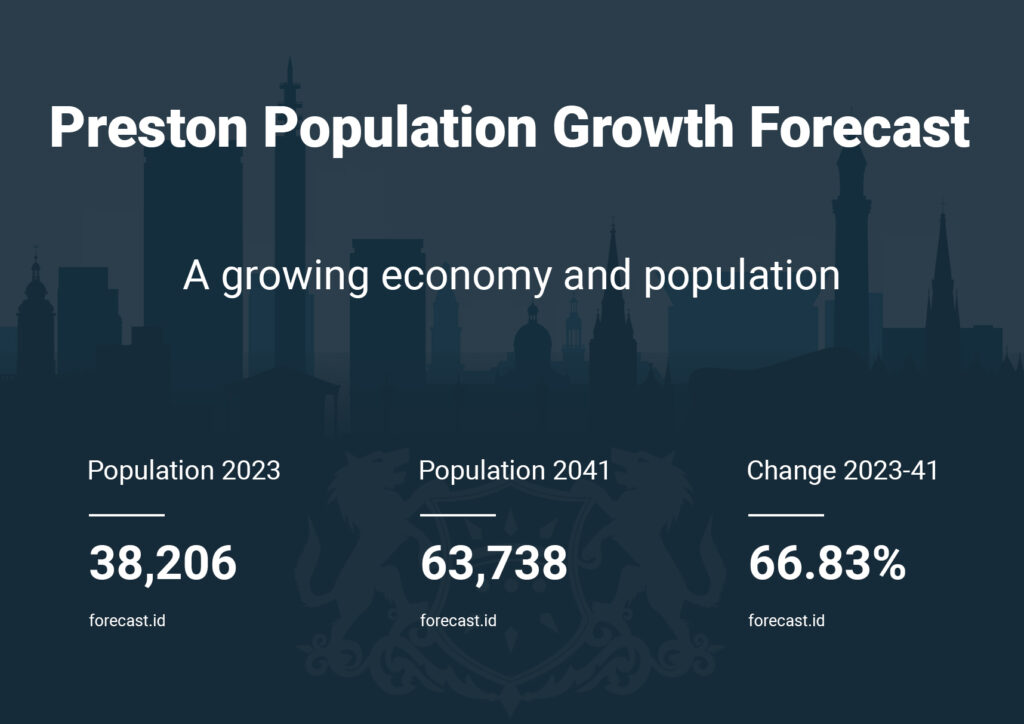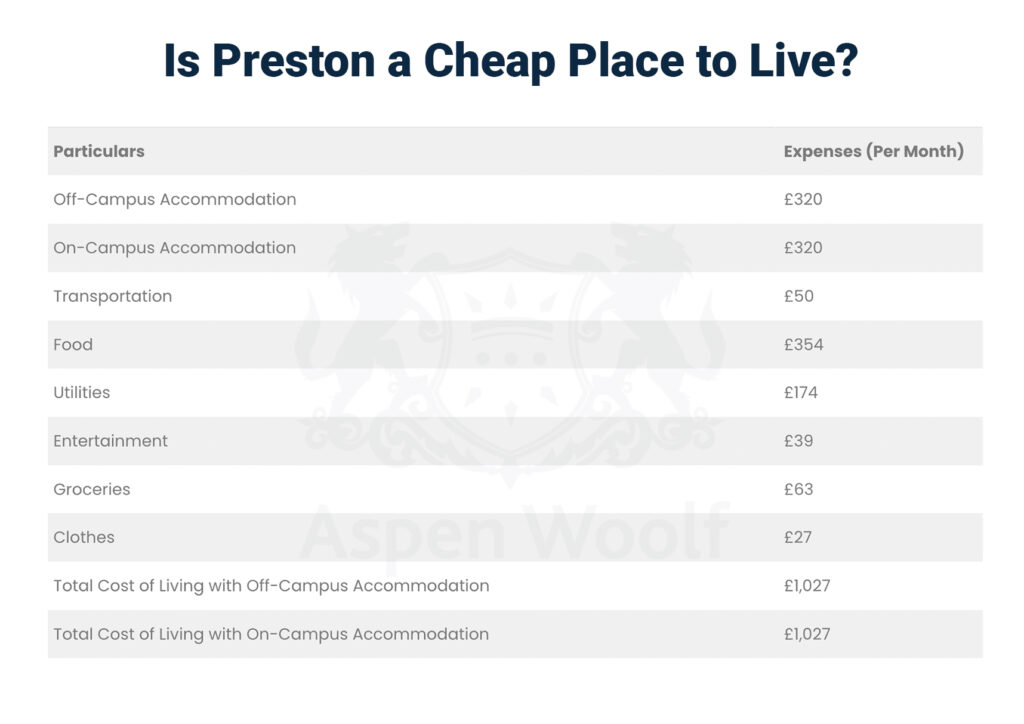7 Best Reasons to Invest in Preston Property

Preston’s buy-to-let property market has caught the attention of investors in recent years. With a strong student and young professional population, numerous industries providing excellent job opportunities and good transport links connecting the region and its surroundings, Preston property investment can be lucrative indeed.
Preston is one of the UK’s up-and-coming destinations to live in and invest in, too. Situated in the North West of England, in 2000, Preston achieved city status and experienced a boom in investment and population.
We take a look at why Preston is an up-and-coming property hotspot and what you need to know about the city before you invest.
A Growing Economy and Population
Since becoming England’s 50th city in the year 2000, Preston’s population has soared. The population size has increased by 5.5%, from 140,200 in 2011 to 147,900 in 2021. The city benefits from a young as well as growing population thanks to an influx of students attending the University of Central Lancashire – one of the UK’s largest universities with a staff and student community of 38,000.
Preston is central to the UK’s defence and aerospace industries, and home to a professional population looking to capitalise on the excellent opportunities in the city. Looking ahead, Preston’s population is forecast to grow to 63,738 by 2041, an increase of 66%.
With economic and educational opportunities, demand for buy-to-let accommodation continues to rise, making Preston property investment increasingly attractive.

Regeneration is Transforming the City
In the past 10 years, regeneration has changed the face of Preston, making it a thriving place to live, work and play. The benefits of the city’s regeneration strategy are evident when it comes to rising house prices and rents across the area.
A few recent key regeneration projects impacting the city include:
- Cyber Force HQ
The UK’s £5bn intelligence and defence unit will be built next to Preston. Cyber force HQ will bring thousands of highly skilled workers to the area, further establishing it as a leading tech hub. It’s expected that the HQ will create more jobs and lead to significant investment opportunities for a lasting economic impact on the city.
- UCLan’s Masterplan
The University of Lancaster (UCLan) is another draw for Preston property investment. The high-ranking university puts Preston on the map in terms of educational offering, which is further strengthened further by its £200 million Masterplan.
Part of the Masterplan saw a £60 million Student Centre open in April 2021. Later phases of the plan are helping to further regeneration and business investment in the University Quarter, benefitting wider Preston and beyond.
- Levelling Up Agenda
From 2022- 2025, Preston council will receive £5.2 million as part of government funding across the UK for local investment. The funds will help to improve the lives of people in the community and relevant different areas of the city.
- Preston Station Quarter Regeneration Framework
A plan for regeneration and redevelopment around Preston train station would see a radical revamp of the area to attract and retain new businesses. The plan includes the redevelopment of the Fishergate Shopping Centre to create retail and leisure outlets as well as high-quality office space.
An additional railway station, Cottam Parkway, has also been proposed to improve travel connections to Blackpool, Manchester and further afield.
Property Prices in Preston
In 2021, Preston ranked as the fifth-busiest property market in the UK, with property prices in the area growing by 14.1%. Demand for houses remains high. In 2022, the average price of a property in Preston was £216k, an increase of around £1.5k over the previous twelve months.
How do Prices in Preston Compare to the Rest of the UK?
Across the North West, property prices are low compared to the UK average, which is around £283,000. In May 2022, buyers paid 24.1% less than the average price in the North West (£206,000) for a property in Preston. Property investment in Preston is becoming an attractive alternative to its neighbour Manchester as this market becomes more expensive and investors seek opportunities further afield.
House prices vary greatly depending on where you look, meaning Preston property investment is suitable for many types of investors and budgets. The most affordable properties in the Preston area are in the PR1 2 postcode, with an average price of £92k. The most expensive properties are located in PR8 2, with an average price of £283,000.
Preston has Attractive Rental Yields
With a population of almost 142,000, a higher-than-average employment rate of 83%, and a strong concentration of students and young professionals, rental demand in Preston is vast and unwavering.
As the regeneration of the city gathers pace, we expect the demand for rental property to continue to gather speed, particularly as more young professionals and families look to make Preston their home.
According to PropertyData.co.uk, the average rental yield in Preston is currently 4.2%, above the UK average of 3.38%. Average gross yields in the PR1 postcode can reach an impressive 7.1%, a 14% rise over the past five years, another good location to consider Preston property investment.
The University of Central Lancashire also presents the opportunity to tap into a thriving student rental market. Investing in student property can mean significantly higher yields than the average Preston property investment. Many terraced houses in Preston have been converted into student flats and HMOs. Gross yields on student property are 5.1% on average.
Is Preston Good for Property Investment?
Preston is relatively inexpensive for investors compared to other areas of the UK. The city gives buy-to-let investors the chance to target different sectors of the rental market, from students to graduates to young professionals and families.
Property for sale in Preston remains affordable and has shown robust growth in recent yields. With regeneration and job opportunities making the city more attractive, the rental market will continue to grow. Savvy investors can gain good rental yields for a property of the right stock in the right location.
Is Preston a Cheap Place to Live?

Preston scores highly on surveys regarding quality of life and is generally considered inexpensive compared to other areas of the UK. In particular, Preston is considered a good choice for students with average cost of living at around £1,000 per month.
Preston is located 20 minutes from the coast, 45 minutes from cities like Manchester and Liverpool and 45 minutes from the Lake District. With four motorways either side of Preston, the city has excellent transportation links, making it an attractive hub for those looking for cheaper living in the North West.
Where to Buy Property in Preston
With demand for housing outstripping supply, especially for properties close to schools and transport links, rents in Preston have risen by 30% in the last 3 years. Terraced houses have excellent potential for capital growth as the supply-demand imbalance continues. By far the
biggest demand for property in the PR postcodes is for 2 and 3-bedroom semi-detached family homes.
Driven by lockdown trends, property for sale in Fulwood Preston can be a great choice, due in part to the record number of young professionals opting for houses over city centre apartments. Good property investment in Preston can also be found in other areas like Ashton and Higher Walton, and Leyland can also deliver good yields and have strong capital growth prospects.
When it comes to Preston property investment, with regeneration, a strong student and young professional tenant market, there is plenty to indicate growth in capital gains and strong yields. With an active rental market and tenants in search of more affordable property away from cities like Manchester and Liverpool, property investment in Preston is one to watch. Get in touch with our expert team to find out more.


